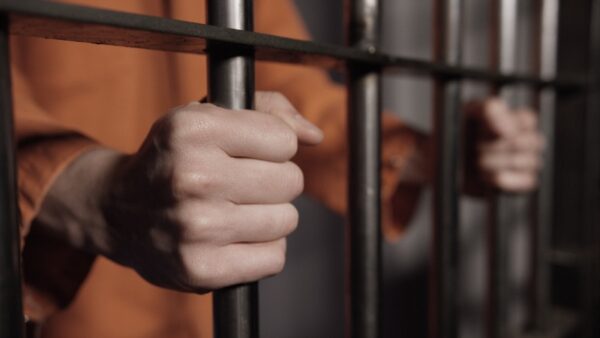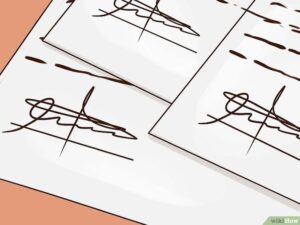Yes, it is possible to violate the terms of your probation without going to jail. To a large extent, technical or minor probation infractions are not always dealt with by incarceration. The judge is not even required to revoke probation. Instead, the judge may change the probationary conditions to make them more stringent or reinstate the original conditions.
But then, let’s find out why it is possible to violate your probation and still stay out of jail as well as other pieces of information that play a role in the judge’s decision
Can You Violate Probation and Not Go to Jail? Overview
Criminal defendants who enter a plea of guilty or are found guilty may serve all or a portion of their sentences on probation rather than in jail or prison. Probation can extend up to several years, but often it lasts between twelve and thirty-six months.
Due to the state’s overcrowded jails and prisons, defendants are often eager to accept probation as an alternative to jail time.
Probation calls for more than just staying out of trouble for a predetermined amount of time, breaking the terms of probation is a serious offense that can result in harsh punishments.
However, not all probation violations result in time behind bars. For a probation violation, probation officers have the authority to either give a warning or request a hearing from the court. At a probation violation hearing, a judge may:
- Reverse a defendant’s probation; Drop the most recent allegations of probation breach;
- Extend a defendant’s current probationary period and impose further conditions;
- Increase the defendant’s current jail or prison sentence by additional time.
When Are Probation Violations Least Likely to Lead to Jail Time?
As earlier mentioned, when probation infractions occur, jail time is least likely to result if;
- the probationer is on schedule to fulfill the requirements of their supervised release,
- the violation is small or technical, the underlying offense must be a misdemeanor rather than a felony,
- and the probationer has not previously broken any other terms of their probation.
But even if all of these conditions are met, the judge has the option of revoking probation and locking up the probationer.
Can You Violate Probation and Not Go to Jail? Technical Infractions
A minor infraction of the terms of supervised release constitutes a technical probation breach.
The terms and conditions of such supervised release will be specified by the judge when a defendant is sentenced to probation rather than to prison. These will be determined by the original crime and the defendant’s prior convictions. The following are examples of typical probationary requirements:
- Using an ignition interlock device for your car if the criminal charges were for driving under the influence (DUI)
- Taking and passing random drug tests
- Doing community service
- Paying restitution
- Not engaging in further criminal activity
- Regularly checking in with the judge for progress reports or with a probation officer
- Only leaving the area with prior approval,
- Staying away from known criminal associates, and
- Not using drugs or alcohol.
There will be more significant infractions of these rules than others. Technical offenses are very insignificant infractions. Substantive infractions, on the other hand, are more severe.
A typical illustration of a substantive violation is committing another crime. A typical instance of a technical infraction would be arriving 10 minutes late for a scheduled court hearing or appointment with a probation officer.
A probation violation that falls in the middle of these two scenarios could be categorized as either a technical or substantive violation. And because of this, the type of infraction is crucial. In order to possibly prevent a jail sentence and keep you on supervised release, a criminal defense lawyer can submit mitigating facts and argue that the breach was simply a technical one.
Common Probation Terms and Violations
Despite a defendant’s best intentions and efforts, probation infractions occur every day. This is partly because a defendant on probation is subject to a lot of requirements.
Standard probationary periods include:
- Not owning any type of firearm;
- Finding and maintaining a job that pays well;
- Observing a curfew and going to school
- Staying put at a certain house;
- Avoiding interstate travel;
- No communication with prior associates;
- Absence of alcohol consumption or possession;
- Wearing an electronic tag or monitor;
The Hearing for Probation Violations
Regardless of the rationale behind a probation breach, probation officers have considerable discretion over any punishment. A probation officer can decide whether to issue a warning for a violation or to request a court appearance and hearing for a probation violation. The probation officer considers the following elements while making their decision:
- The seriousness of the offense;
- The nature of the offense;
- Past warnings, any history of probation violations, and any other factors that the judge deems pertinent.
If the probation breach is brought up in court, the judge will consider all the relevant information before making a decision. Examining the following is part of this:
- The initial offense,
- the defendant’s criminal history,
- the nature of the probation violation, and
- any comments made by the probation officer.
If You Violate Your Probation, Do You Go to Jail Immediately?
No, not always, like we earlier mentioned. A person’s probation or jail sentence is not automatically revoked for every infraction of probation. The judge’s decision will be based on the original crime, previous convictions, and the particular infraction. In addition to the probation officer’s advice, the judge has a number of options at his disposal, including further and immediate jail term for probation breach with no bail set.
How Long Do You Stay in Jail After You Violate Your Probation?
A jail or prison sentence is a regular punishment for probation violations, however, it is not always imposed. The judge may decide to give the guilty person the maximum jail sentence even though they have completed the majority of their probation.
In most states, a third-degree felony carries a five-year jail sentence. The judge may impose a five-year prison term if the offender was previously given a three-year probationary period that he or she completed before breaking the terms of the probation.
Does It Matter if the Probation Is for a Misdemeanor or a Felony?
Whether the judge revokes probation after a violation can depend on how serious the original criminal offense was.
Misdemeanor crimes result in misdemeanor probation, sometimes known as summary probation, while felonies result in felony probation. Because felonies are more serious crimes, felony probation typically has tighter terms and a lengthier probationary period than a summary probation sentence.
When determining how to punish someone who has broken the terms of their probation, many courts take this into account. They may consider someone on probation for a felony as more of a risk to the public.
Read Also: FELONY PROBATION: Rules and Violation Penalties
Is the Punishment Decided During the Hearing for Probation Violation?
Yes, the probation violation hearing is often where the punishments for a suspected probation violation are decided. This may also be referred to as a hearing to revoke probation.
Hearings on probation violations are called for when a court or probation officer believes that the probationer has broken one of the conditions of release. The probationer’s arrest could be covered by a bench warrant.
The probationer will usually be held in detention after being apprehended. Before the revocation hearing is held, the probationer may be released on bail at the judge’s discretion.
It is the responsibility of the prosecutor to prove at the revocation hearing that the probationer broke one of the conditions of their supervised release. The prosecution must prove this in accordance with the US’s criminal code by a preponderance of the evidence, although he or she may rely on hearsay to do it.
The probationer’s criminal defense attorney, on the other hand, can present evidence that explains the probationer’s side of the story after the judge has heard the prosecutor’s testimony that the probationer broke the terms of their release. Typical arguments against a probation violation claim include:
The probationer did not actually break the probation’s rules, and the infraction was slight enough to be considered a technical one that does not call for the probation to be revoked.
The judge will then provide a decision following the hearing of all the relevant evidence.
What Outcomes Are Available for the Hearing?
At a hearing for a probation breach, judges can go for the following outcomes:
- The court may revoke probation and order the probationer to serve the balance of their sentence in jail or prison,
- Alter probation to tighten the regulations, or
- Reinstate probation with the previous terms and conditions.
Meanwhile, the prison term would come from the same range as the suspended sentence if the court decided on revoking probation. The judge has the authority to impose the maximum penalty.
For those who are facing a new offense, on the other hand, probation revocation is a systematic punishment. Judges are more inclined to just reinstate or change the terms of probation if they discover that the defendant breached probation but that the violation was minor or technical.
Your Rights Following a Probation Violation
Your rights are restricted when you break the terms of your probation, a DWI lawyer can assist you in defending them. These are a few of them:
- As a response to the infraction, enter a plea
- In support of your alleged breach, provide evidence.
- Having an attorney
That being said, the prosecution simply needs to prove, by a majority of the evidence, that you broke your probation. Having to demonstrate your infringement beyond a reasonable doubt is quite different from this. As a result, it’s considerably easier to send you back to jail. Avoid the error of trying to handle this situation on your own without the assistance of a probation violation lawyer.
What Happens if You Violate Probation in Texas for the First Time
The court may issue a warrant for your arrest if you break the terms of your probation.
Furthermore, the warrant might not have a bond. You will therefore need to retain a criminal defense attorney and ask the court to set a bond for you. Usually, the bond set will be twice the original bond.
Even if it’s your first infraction, your probation officer can submit a report about it to the court, which will then issue a warrant for your arrest. A first-time probation violation involving a felony or misdemeanor may occur. Depending on how serious the infraction was.
Meanwhile, you have the right to appeal your revocation by asking for a hearing. The state must present proof at the hearing that you did, in fact, break the terms of your probation. The judge cannot revoke your probation in the absence of such evidence. But always keep in mind that the judge ultimately decides whether to send you to jail if you break your probation.
Probation for Misdemeanor
A misdemeanor conviction or charge may result in a straight probationary term. Additionally, you might be able to serve a probationary sentence in place of jail time or after a shorter jail term.
A probationary period can be difficult, even for misdemeanors. There are often several requirements that you must meet, and there is usually limited tolerance for mistakes. If you violate its terms, your probation can be revoked and you would have to serve the rest of your sentence in jail.
The kind of misdemeanor for which you were found guilty and your own criminal background are two criteria that impact the terms and duration of your individual probation sentence. Typically, probation sentences may include one or more of the conditions mentioned in the infractions section.
Probation for Felony
Misdemeanor probation functions similarly to felony probation:
Following a felony charge, you might be given probation, with the chance to escape conviction if you follow the requirements of probation (known as deferred adjudication)
After being found guilty of a crime, you may also receive probation in addition to other punishments like jail time (known as conviction probation)
Following a felony conviction, you can receive a probationary sentence rather than a jail sentence (known as straight probation)
The majority of the requirements for fulfilling probation are the same for both felonies and misdemeanors, with one significant exception: some felonies, such as capital offenses and other crimes with penalties of more than 10 years, are not eligible for probation terms.
What Happens if You Violate Probation Twice?
Even if a prosecutor or judge is lenient after a first probation violation, they are much less likely to do so after a second one. Nevertheless, your probation will not necessarily be canceled if you violate it again. Take into account the following possible punishments:
- Extension of your probationary period
- Extended probationary conditions, such as higher penalties
- More frequent drug and alcohol testing,
- Additional community service hours, or the need to finish another program or course
- A jail sentence, either as a stand-alone offense or in conjunction with additional penalties
- Your probation will be revoked
The best defense against having your probation revoked is an experienced attorney who can guide you through a prospective revocation hearing and assess your alternatives in the event of a violation.



